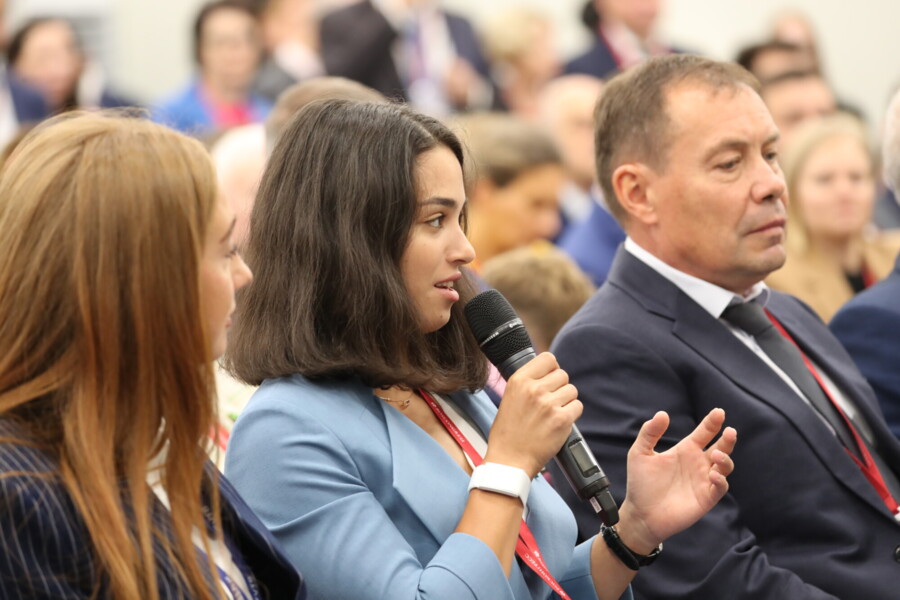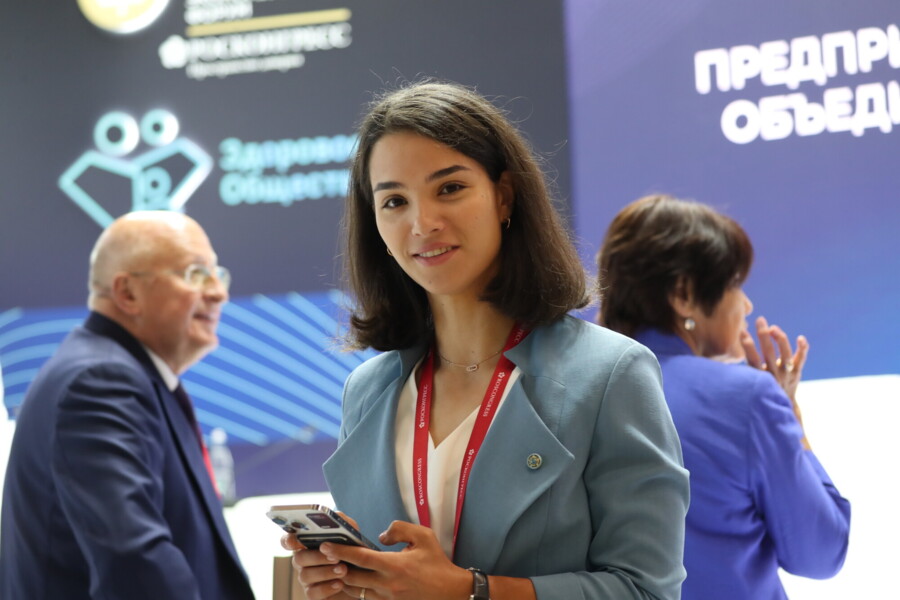…When the moderator of the session said for the third time “Olympic champion Veronika Stepanova…”, I wanted to answer him: “Dear friend, is it necessary to emphasize this? Isn’t this obsolete? I have no reason to be ashamed of my Olympic medal. And I may be the last Olympic cross-country ski champion for many years to come. But since then, I have managed to win many other competitions. And those who think that it is easy to overtake Terentyeva, Sorina or Kuleshova in any race, let them go wild and try.
…Just three years ago, the main indicator of the success of a Russian athlete and his sport was medals at international competitions. Everyone has gotten used to it over the decades. And this is completely normal in the realities of that time – with our main competitors in cross-country skiing, the Norwegians and the Swedes, everything is the same: the state and private companies support the best athletes in exchange for a chance to win Olympic gold. Great victories under the country’s flag also strengthen national spirit, patriotism and optimism in any society. We didn’t invent it – international experience.
But now all that is in the past. Of course, you can hope that everything will come back and return soon, but it’s smarter to work on alternatives.
I came to SPIEF this year for new ideas. And also to share, push mine.
There is three :
1. Systemic integration of high-level sports and mass physical education. It’s easier to do than it seems.
The “national team” is not only and not so much those which have been selected by their sports federation. A true national team in most sports is made up of athletes under contract with the Russian National Team Sports Training Center, a government agency. This contract can easily include obligations for the development and promotion of the sport. If you want to get paid, give sports lessons to children, organize meetings with fans. Is it difficult and you don’t have time? Study, research, optimize, give up some entertainment. After all, the same requirements appear in my contracts with personal sponsors – several times a year I have to participate in events promoting their brand. Most of us already work with young people, but this is all at the “coach requested” level. There is no system and everything is done at the last moment, unexpectedly. I don’t like impromptu, I don’t like “introduction” and chaos. All my successes are due to discipline, preparation and organization. And I would like to know not only where and when my training camp will take place in October (I have known since April, I have been preparing), but also on what day I will meet the young skiers and in what format.
TsSP is a powerful organization. Not only an employer, but also an organizer. This year I was the “operator”, the organizer of our main tournament of the year – the Spartakiad. I have a question: why do we need 6 races there? Because this is the case at the Olympic Games and the world championships? It’s this “everything is like this” mentality that needs to be changed. Instead of one or even two races, you can organize master classes with the best conditionally fifteen-year-old skiers in Siberia and the Far East. Yes, even a relay show with the participation of spectators drawn at random from the stands! It’s important not to copy anymore
“international standards” of the last century. They are s-sta-re-li!
2. A modern athlete must clearly understand from the beginning of his career that he is a part of the entertainment industry with all the attributes, habits and obligations.
Have you seen an actress, musician or blogger who eschewed fame through public outreach, photo shoots and all those red carpets? No. Because it’s part of the job. Well, that’s how it should be for us. Because a modern employer – whether it is a sports club or the state – is directly interested in it. If an athlete can look a little further than his nose, then he should be content with such a requirement and help in the process: fame, promotion turn into advantages.
Professional athletes train and perform not only for the love of the sport, but because it is a source of income. Well, now the source has changed. There will no longer be prize money of 10-15,000 euros per medal in the race, as in the World Cup. But you can make a lot of money with your name. If you try.
I have the strong impression that on these two subjects I found agreement with my interlocutors at SPIEF, whether they are major leaders, corporate sponsors or media bosses.
If you only knew how often I hear my favorite word “influencer”!
Finally, my third idea. What some seem to be the opposite of the first: selections. Regional, zonal – whatever you call it, as long as their winners start with the best skiers (biathletes, etc.).
Mass races are a good thing. Championships and cups in which the winner “brings” a minute per kilometer to the hundredth participant are expensive and bad. Appearing on the ski slope with Kuleshova, Faleeva or me does nothing for “first-class Masha Ivanova” except frustration that the sponsors gave us a wagon full of skis and other new equipment, but, alas , She did not do it.
Such competitions should be similar to boxing matches or UFC fights: a long promotion of the main characters, arousing interest – and a relatively short event/performance itself. As the director of the largest bookmaker agency told SPIEF: people, especially young people, do not want to watch long competitions. He knows better: If anyone has overslept, most of the money in our professional sports now comes from bookmakers.
To my proposal to highlight and separate the best from the merely good, the reaction was more restrained and skeptical. But here I didn’t expect anything else: this is already a business, and in business you need to calculate investments and expected profits, in specific rubles. I don’t know how to write business plans yet. But I’m waiting for someone more knowledgeable to do the calculations.
And I will end with the most important thing for me at SPIEF… I will quote the new Minister of Sports of Russia Mikhail Degtyarev during a session dedicated to the media in sport: “The 21st century is the century of the struggle for attention. … Maybe scandals are needed… Without scandals, you won’t go far, you won’t attract attention…”
I am happy to have like-minded people in high positions!
More sports news in our telegram channel .
Source : MatchTV
I am Sandra Jackson, a journalist and content creator with extensive experience in the news industry. I have been working in the news media for over five years. During this time, I have worked as an author and editor at various outlets producing high-quality content that attracts readers from different demographics.




